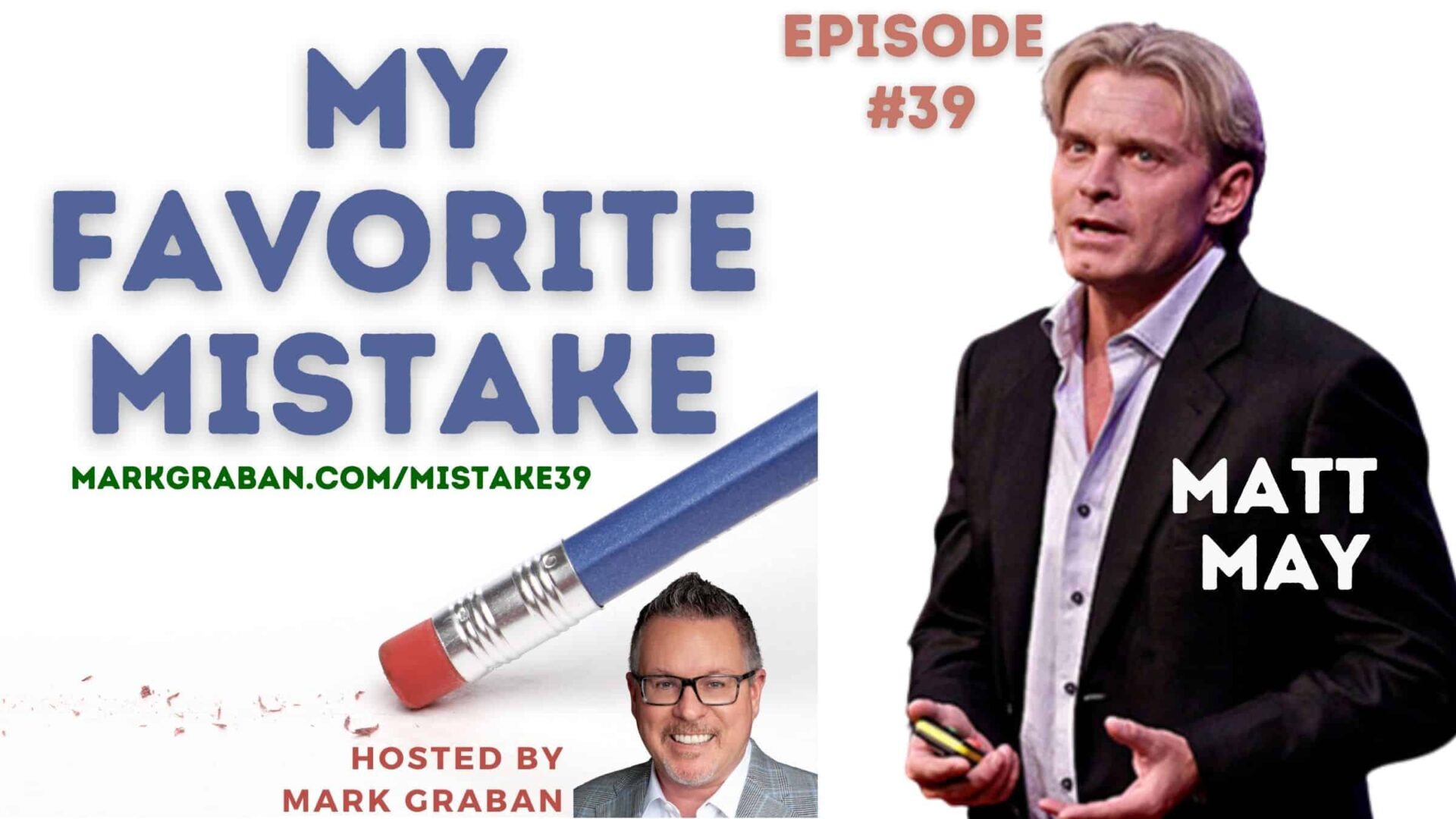Today, I'm sharing two interviews and discussions — one where I was primarily the host and one where I was the guest. Oh, and there's a third… the latest “My Favorite Mistake”
LinkedIn Live with Jim Benson
Last week, Jim Benson and I did a LinkedIn Live broadcast where we had a conversation on the theme of “Humane Management” as he dubbed it.
You can watch a recording of the session below and I'll be releasing the audio as a Lean Blog Interviews podcast soon. Jim was previously my guest for Episode 155 of that series and he was also the guest for Episode 4 of “My Favorite Mistake.”
Some notes and things that we mention:
- Jim's definition of “velocity”: an imaginary number divided by an arbitrary amount of time
- The new certification program from Modus Institute: The Lean Agile Visual Management Certification and Accreditation Series
- The book Patients Come Second (my interview with the author)
- Psychological safety
- Leaders being of service to employees
- “Learned helplessness”
- “Neither milquetoast nor spineless” — would that make a good podcast title? We brainstormed a few others, inadvertently
- What is systems thinking?
Enterprise Excellence Podcast
I was invited by Brad Jeavons, an improvement consultant from Australia, to be a guest on his podcast called “The Enterprise Excellence Podcast.“
The episode where I was the guest is titled:
How to achieve excellence in Healthcare with Mark Graban
The page for the episode has a synopsis and some quotes, including:
The challenges, I mean, back when I was in manufacturing, we learned this mantra of, um, SQDC: safety, quality, delivery and cost. There are huge opportunities, sadly, in all four areas within Healthcare.
Matt May's Favorite Mistake
Episode 39 of “My Favorite Mistake” is with another friend from the Lean world, Matthew E. May:

Matt has been a guest on my Lean Blog Interviews podcast many times. So, you might know his work, but did you know he originally pursued an acting career after getting his MBA from Wharton? He shares some stories about that, but Matt and I also talk about mistakes more generally — when are they “happy mistakes?” Were there any acting gigs that were mistakes? How should we think about mistakes, as individuals and as organizations?
Thanks for checking these out.
Please scroll down (or click) to post a comment. Connect with me on LinkedIn.
Let’s work together to build a culture of continuous improvement and psychological safety. If you're a leader looking to create lasting change—not just projects—I help organizations:
- Engage people at all levels in sustainable improvement
- Shift from fear of mistakes to learning from them
- Apply Lean thinking in practical, people-centered ways
Interested in coaching or a keynote talk? Let’s start a conversation.





![When Was the Last Time a Leader Around You Admitted They Were Wrong? [Poll]](https://www.leanblog.org/wp-content/uploads/2025/07/Lean-Blog-Post-Cover-Image-2025-07-01T212509.843-238x178.jpg)




Hey Mark,
I appreciate your reply to my comment about the Buffalo Bills and Kaizen. You and Jim discuses how many employees fall under this Groupthink pattern were they blindly listen to whoever’s in charge. I know you gave some examples but could you give some more examples of how a manager can discourage this groupthink and have the people under him contribute more ideas.
Jim also discusses the 2 day certifications that don’t really test a persons understanding. Do you think there will be a push for companies to require these longer 4 month certifications like Jim had.
Great question, Josh. I think managers have to be really careful that they don’t squash their employees’ ideas or discourage them from speaking up. This sometimes happens when the manager speaks up first… and then asks for input. They might be sincere, but employees might also not trust that it’s safe to speak up… so they go along… and then there’s some groupthink.
Hey Josh … Groupthink can easily happen when any group of people get together and there is no trigger to engage deep thought. Often we get into meetings, we have an hour, and the goal is to get in, get done, and get out. That creates short-term expediency thinking. If you have a tactile exercise (even on something like Miro) that the people can interact with, that prompts the brain to think a little harder. (Engage their system 2).
When that happens, Groupthink can be short-circuited because someone…will notice something.